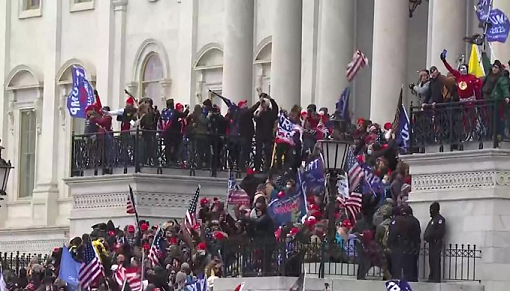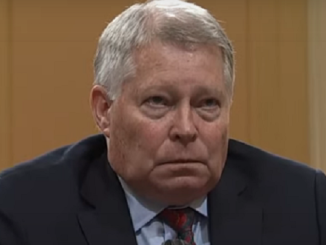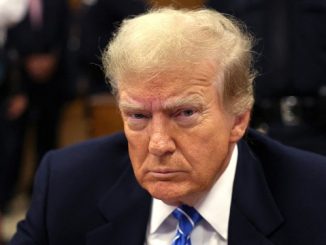
The US Senate has fallen short of the two-thirds majority needed to convict former President Donald Trump on a charge of incitement to insurrection over the Capitol riot on 6 January.
A majority of senators – 57 to 43 – voted to convict Mr Trump. It would have needed 17 Republicans to vote with the Democrats to secure a conviction.
After his acquittal, Mr Trump released a statement denouncing the trial as “the greatest witch hunt in history”.
This was Mr Trump’s second impeachment.
If he had been convicted, the Senate could have voted to bar him from running for office ever again.
What happened on Saturday?
In their closing statements, the Democratic House of Representatives lawmakers appointed to shepherd the process through the Senate warned that it would be dangerous to acquit Mr Trump.
“The stakes could not be higher because the cold, hard truth is that what happened on 6 January can happen again,” Representative Joe Neguse said.
“History has found us. I ask that you not look the other way,” Representative Madeleine Dean said.
However, Mr Trump’s lawyer, Michael van der Veen, called the proceedings a “show trial” and said the Democrats were “obsessed” with impeaching Mr Trump.
“This impeachment has been a complete charade from beginning to end,” he said. “The entire spectacle has been nothing but the unhinged pursuit of a long-standing political vendetta against Mr Trump by the opposition party.”
Mr Trump himself said no president had “ever gone through anything like it” and that “the movement to Make America Great Again” had “only just begun”.
The outcome of the vote was foreshadowed by the senior Republican in Congress, Senator Mitch McConnell, saying he would vote to acquit.
Why did the Senate not hear any witnesses?
Senators initially voted for personal testimony, which would have delayed a possible verdict on Saturday. But after emergency consultations to avoid any hold-up, they changed their ruling to admit written statements only.
The flip-flop came after discussion of a phone call between the former US president and a top Republican official, Kevin McCarthy, while the riot was going on.
A Republican member of the House of Representatives, Jaime Herrera-Beutler, said Mr McCarthy had told her about the call on the day.
She said Mr McCarthy had implored Mr Trump to call off the rioters, but the president had wrongly blamed left-wing activists broadly known as “antifa”.
“McCarthy refuted that and told the president that these were Trump supporters,” Ms Herrera-Beutler said. “That’s when, according to McCarthy, the president said: ‘Well, Kevin, I guess these people are more upset about the election than you are.'”
Instead, the congresswoman’s statement was admitted in written evidence.

At its most basic level, this is a win for the former president. He is still eligible to run for president again in 2024, if he so chooses. His base, by all indications, is still largely intact. Both in the House of Representatives and in the Senate, most Republican officeholders opposed the impeachment proceedings. Those who broke ranks are already facing ferocious criticism and, in some cases, formal reprimands from their Republican constituents.
Trump did not emerge from this impeachment trial unscathed, however. One of the most memorable portions of the prosecution case by the impeachment managers were the new videos of Trump’s supporters, wearing Make America Great Again hats and waving Trump flags, ransacking the Capitol.
Those images will forever be associated with the Trump brand. Every rally he holds from here on will evoke memories of that riot. It may not cost him among the Republican rank and file, but independent voters – and moderates – are unlikely to forget.
Source: bbc.co.uk






Be the first to comment